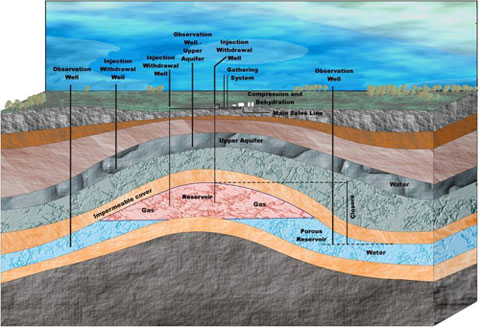Role of Storing Natural Gas
The role of storing natural gas can be grouped into two main categories: operational and commercial.
From an operational standpoint, natural gas storage is a valuable tool for offsetting supply/demand imbalances. Given the considerable investments involved in producing and transporting natural gas, it is best to maintain a stable, steady supply year long. For example, the transportation network users aim for a 100 % load factor (daily use divided by peak use) resulting in lower operating costs.
On the other hand, demand for natural gas fluctuates from one day to the next for a host of reasons, namely weather. Storage sites are therefore tools that make it possible to efficiently offset seasonal and daily imbalances between supply and demand.
Storing natural gas near consumption centers also increases security of supply.
From a commercial perspective, storing natural gas makes it possible to take advantage of business opportunities available on the market. For example, storing natural gas allows companies to reduce supply costs by buying and injecting gas in the summer when demand and prices are low, and extracting it in winter when demand and prices are higher.


